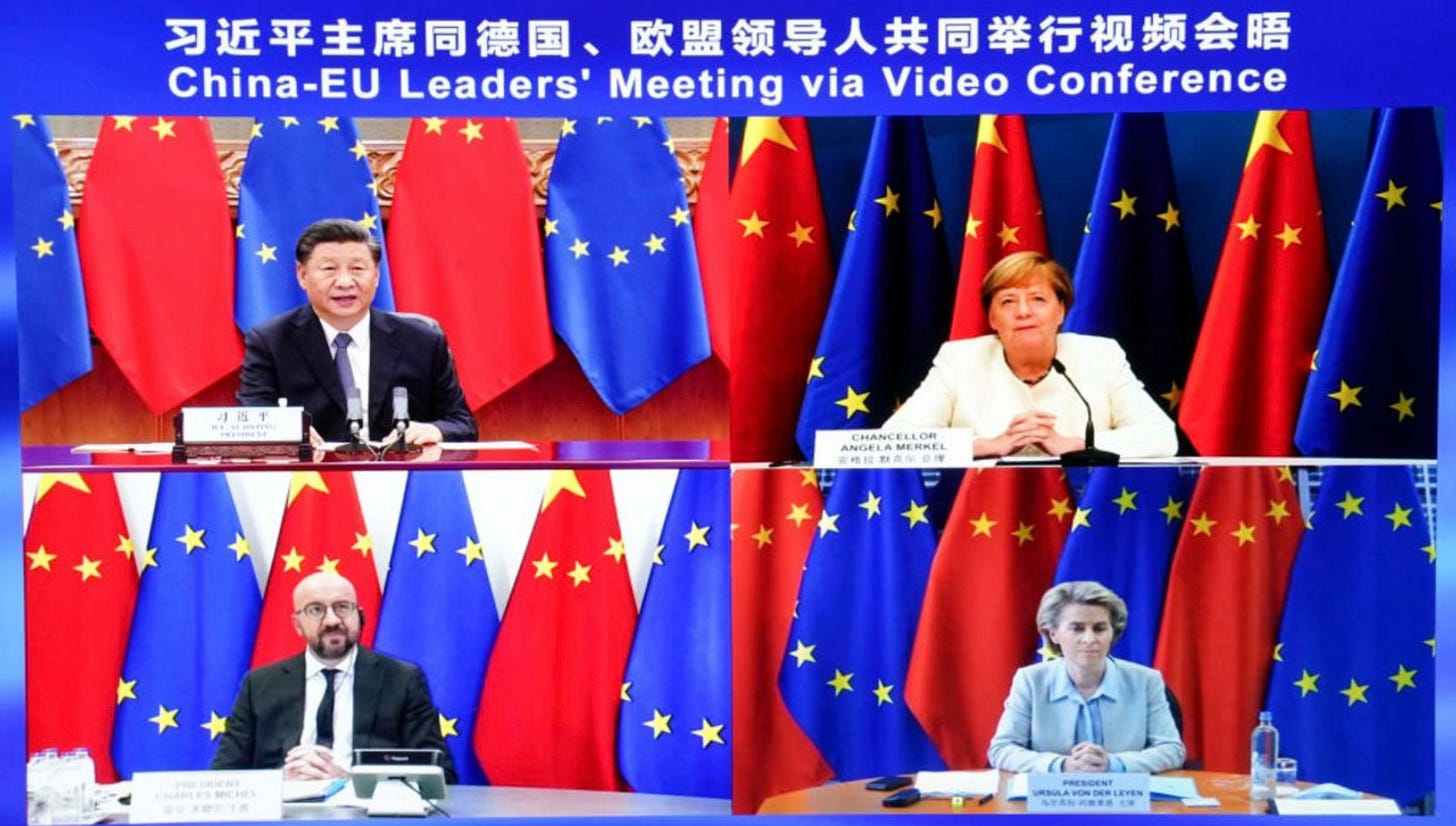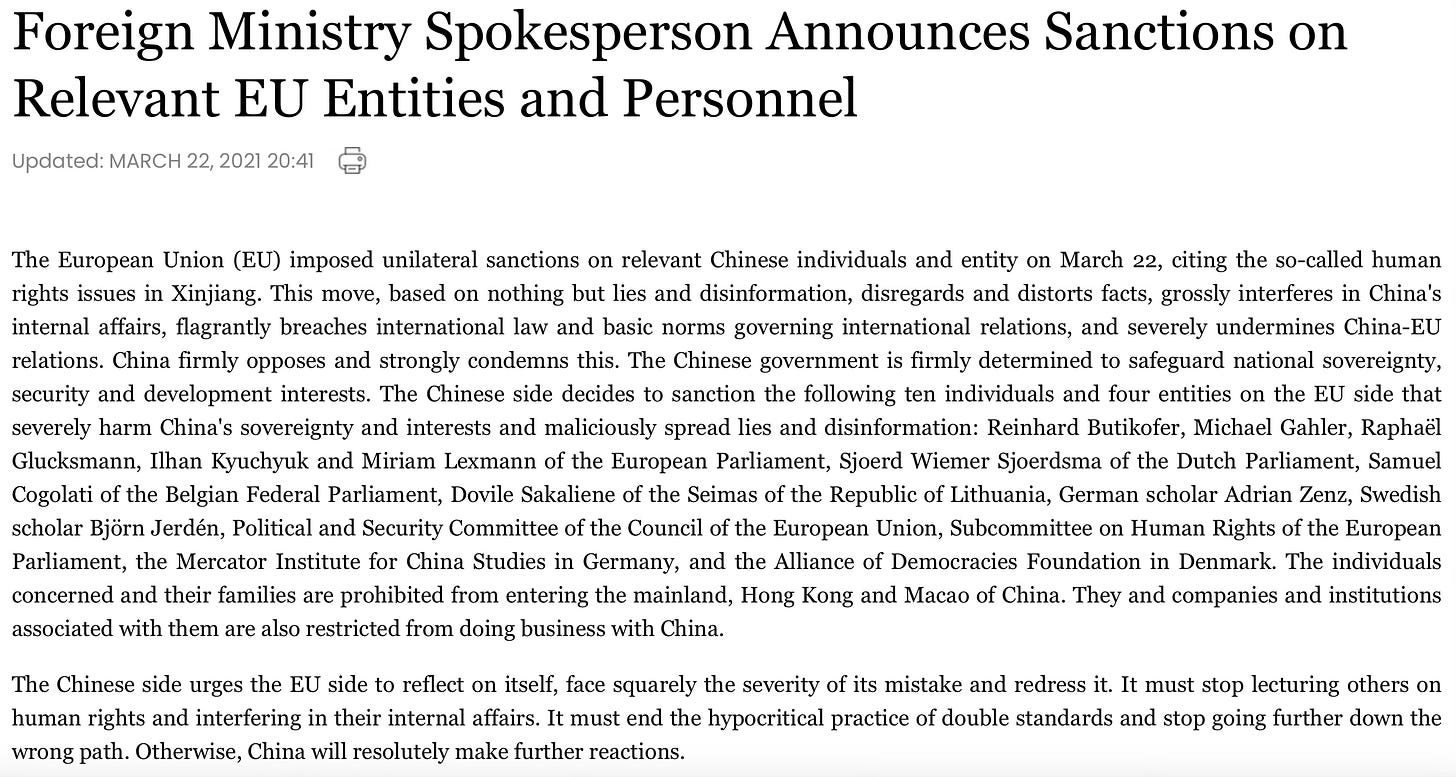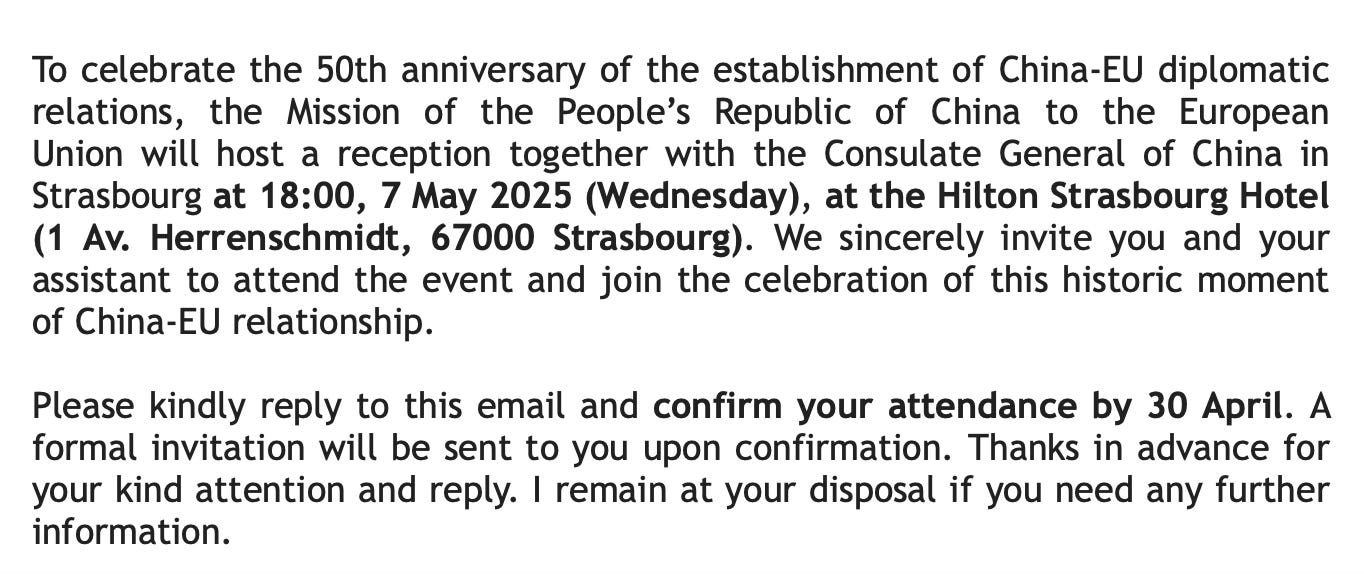China to lift sanctions that sunk the CAI
The move will fuel speculation of an EU-China détente amid Trump trade war
Starting off my life on Substack with some interesting news…
I understand from multiple sources that China may be preparing to lift its sanctions on members of the European Parliament (MEPs) as early as next week. The sanctions were imposed in March 2021 in response to the EU’s decision to impose sanctions on Chinese entities for human rights violations in Xinjiang. The exchange of sanctions led to the collapse of the EU-China Comprehensive Agreement on Investment (CAI) that had been agreed months before.
Officials tell me that China hopes the removal of sanctions will lead to a revival of the CAI, sending a powerful signal about EU-China cooperation at a time when Beijing and Brussels are under intense pressure from a global trade war launched by President Donald Trump. But senior officials in the European Commission describe the CAI as a relic of another era and in recent conversations have rejected the notion that it could ever be revived in its current form. Still, such a move would fuel expectations of an EU-China détente ahead of a summit planned for July in Beijing. I still view the chances of a meaningful rapprochement between the EU and China as slim.
I am told that the President of the European Parliament, Roberta Metsola, has been discussing a withdrawal of China’s sanctions with the Chinese Mission to the EU for several months. Earlier this year, she quietly removed non-binding guidelines, introduced after the 2021 sanctions, that placed restrictions on interactions between MEPs and their Chinese counterparts. According to multiple officials, Metsola sold this move to the Chinese side as a removal of EU “sanctions”, and has pressed them to respond in kind. The EU is not considering dropping its Xinjiang sanctions.
It is unclear, officials told me, whether China is poised to remove sanctions on all of the 10 entities it targeted in 2021 (see below). These included five MEPs, two EU-linked committees, three national parliamentarians, the Mercator Institute for China Studies (MERICS), the Alliance of Democracies Foundation, and a Swedish and German scholar. If Beijing only removes sanctions on MEPs or EU-linked institutions, while leaving those on other individuals and organizations in place, it will be seen by some as a cynical, half measure to lure the EU into its camp at a time of deepening transatlantic tensions. Metsola herself could come under criticism for putting the European Parliament’s relations with China above those of the EU as a whole.
It is also unclear when China could announce the move. Some people suggest that China could quietly signal to members of the European Parliament that it is no longer enforcing the sanctions. During a visit to Brussels in February, I was told that Hua Chunying, China’s vice minister of foreign affairs, made clear to EU officials that ambassadors that make up the EU’s Political and Security Committee (PSC), a sanctioned entity, were free to travel to China.
Metsola is expected to discuss the matter at an April 30th meeting of leaders from the political groups in parliament. This week, the Chinese Mission to the EU invited MEPs to a reception on May 7th in Strasbourg to celebrate the 50th anniversary of relations between the EU and the PRC. The expectation is that the reception could be used to celebrate the removal of sanctions and what Beijing hopes will be a bright new era of EU-China cooperation.







I agree that this seems rather cynical if that is all the Chinese side offers. Xi declined an invitation to celebrate the 50th anniverssary in. Instead, Xi goes to the victory day's parade in Moscow. So much about the European-PRC comprehensive strategic partnership. Thank you for the super interesting report.
A very thin offering. This is usually rich with useful insights...